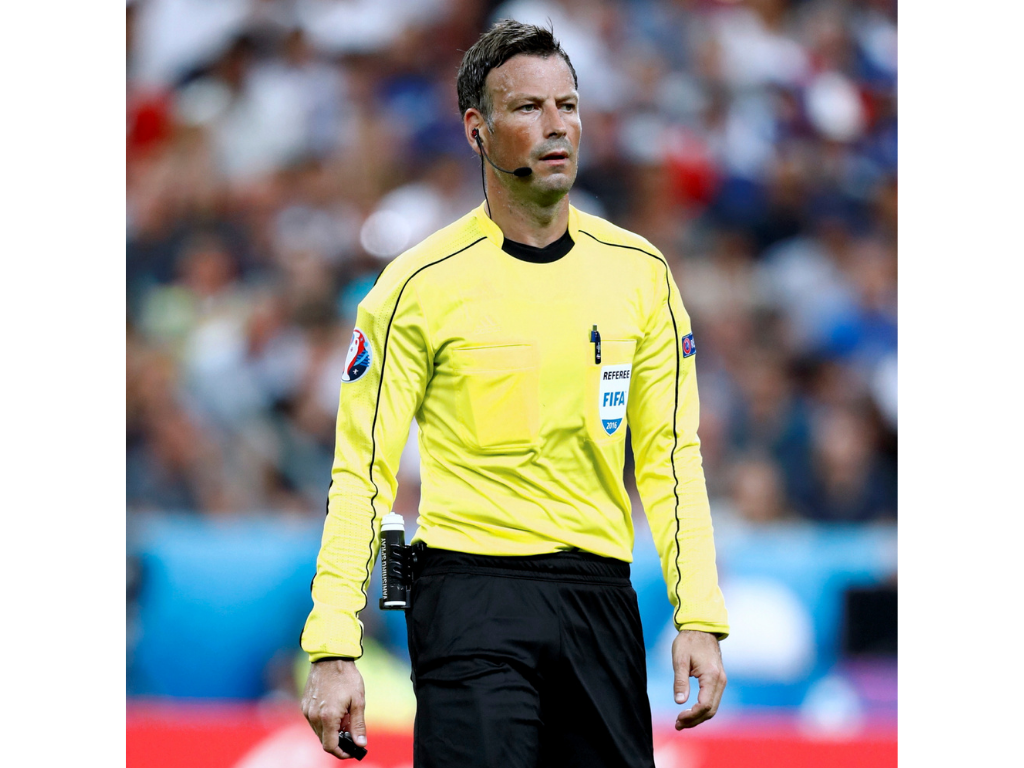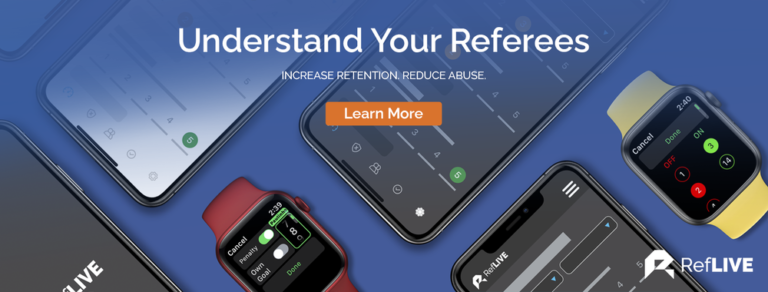How do you gain a mental edge which assists you in controlling 22 players and club officials? Mental practice or visualisation is one strategy that can give you a decisive advantage over your colleagues attempting to do the same job.
Visualisation is a mental skill that uses images combined with other senses to experience a successful refereeing performance prior to blowing the first whistle to begin the match.
You have images that pop up in your head all the time. Many of those images are worst case scenarios or situations you fear might happen. Images are powerful, and when repeated over time, the likelihood of those images becoming reality increases.
Visualising is a way to direct the films in your head so you can successfully deliver your appointments.
As referees, we can learn from Olympic athletes use of visualisation as a regular part of their mental training.
In preparation for the 2021 United States Olympic Trials, swimmer Cody Miller visualised daily.
Miller used visualisation to prepare himself for the competition, which took place over a number of days, against other elite swimmers and kept him mentally ready to perform under the pressure of Olympic Trials.
“For months, before I qualified for the [2016 Olympic] team, every night before I fell asleep, I would spend 5 or 10 minutes just visualizing what the atmosphere at Olympic trials in Omaha would be like. What the pool was going to look like, how it was going to look when I was standing behind my lane. All of those things were already determined in my head and how I was going to act when that time finally came.” – Cody Miller, US Swimmer
Ultimately, Miller made the Olympic team and won a bronze medal in the men’s 100-metre breaststroke at the 2016 Summer Olympics. Miller set an American record in the process, with a time of 58.87 seconds.
Important Visualisation Points:
- Identify the behaviour you want to add to your refereeing. What do you want to achieve within your games? Write down exactly want you want to happen.
- Start the exercise by getting into a comfortable position and a relaxed mental state.
- Close your eyes and set the scene. Mentally see yourself in the situation out on the field of play.
- Use all your senses. What would you see, hear, feel, smell, and taste? Imagine wearing your kit and having your whistle or flag in hand.
- Experience yourself managing the situation successfully. Try to make your images as vivid as possible.
- Feel the emotions you’d associate with the situation. Start the scene feeling energised, excited, relaxed, and confident.
- Immerse yourself in the emotions of performing successfully. Even see the players, coaches, parents, and spectators accepting your decisions and handling of the situation.
- Practice visualising the scene on a regular basis.
Visualisation is a powerful tool and provides a substantial edge for referees over their colleagues, especially important when aiming for promotion.
Every time you visualise, you embed those successful images and emotions in your mind which helps you perform in a similar manner on matchday.
Advice for Visualising Successful Performances:
Mental rehearsal is not just about performing perfectly when you cross the white line with a flag or whistle in hand. The unexpected happens more often than you’d realise on the field of play. You want to prepare yourself by visualising challenges you might face and how to cope with those challenges.
Want to learn more about how to use mental rehearsal to your advantage? We work with referees all over the world via Zoom, FaceTime, and Teams, in addition to the face to face work we do with clients. Contact us for details about mental game coaching.
At The Third Team I work individually and in collaboration with different professionals where I have developed workshops associated with Resilience and Mental Toughness Development to help referees. The workshops are interactive, where referees are encouraged to open up and share their experiences to help each other.
Feel free to contact me if you’d like to know more about my workshops and how I could help you or your officials.
Best Wishes,

Nathan Sherratt
Referee Educator & Managing Director of The Third Team

Nathan Sherratt
Nathan Sherratt, Referee Educator, Resilience Trainer and Managing Director of The Third Team. A Mental Toughness Practitioner based in County Durham, North East England.


